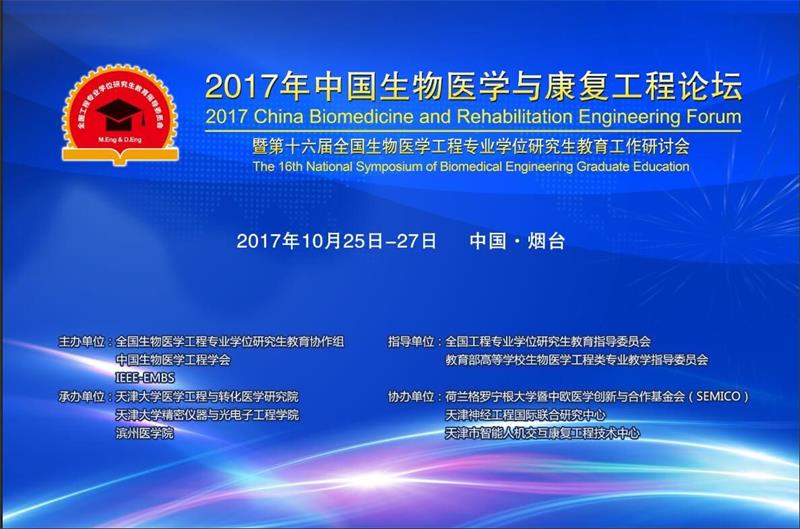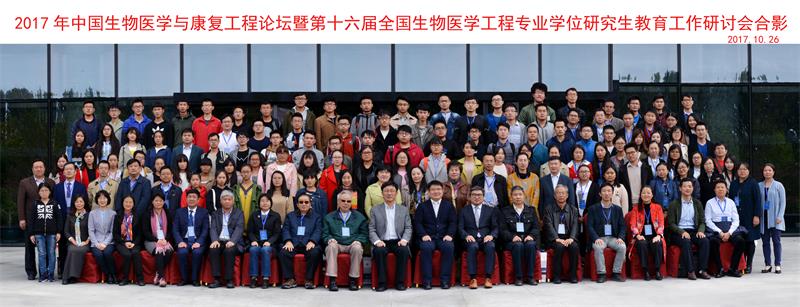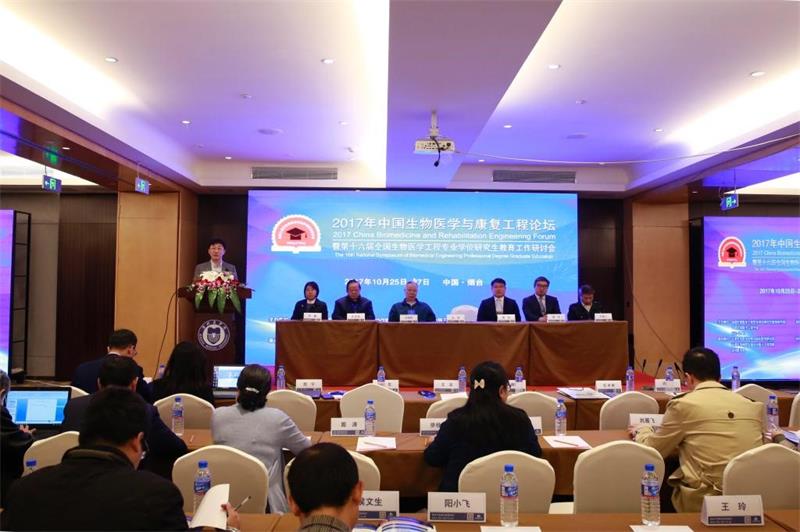On October 26-28, 2017 the China Biomedical and Rehabilitation Engineering Forum (CBREF) & the 16th National Symposium of Biomedicine Engineering Graduate Education (16th NSBEGE) was held in Yantai, Shandong Province, China. Chinese and international experts and scholars in the field of biomedical engineering and representatives from biomedical enterprises attended the event. The Forum was organized by the Chinese Society of Biomedical Engineering and the IEEE-EMBS, and co-hosted by Tianjin University (TJU) and Binzhou Medical University.

On October 26, Professor Ming Dong, chairmen of the forum and Dean of TJU’s Research Institute of Biomedicine Engineering and Translational Medicine, and Professor Wang Bin, President of Binzhou Medical University spoke at the opening ceremony. They extended their welcome to all the delegates present and hoped that the forum would push the advancement of China’s biomedical engineering.
Experts delivered brilliant keynote speeches at the symposium, providing real academic feasts for the attendees. Professor Wan Suiren from Southeast University focused on “Embracing the New Era of Medical Artificial Intelligence”. Professor Ming Dong explored “The Key Technologies of Artificial Neural Rehabilitation Robot System”. Professor Wang Bin gave a report on “Exploration and Practice on the Rehabilitation Medicine Education Mode in the View of a ‘Healthy China’”, and Professor Qu Ning from the University of Groningen, the Netherlands, illuminated his view on “Healthy Aging and Future Medicine”. Additionally, 11 renowned scholars from the Karolinska Institute of Sweden, Li Ka Shing Faculty of Medicine of the University of Hong Kong, the Chinese Academy of Medical Sciences, among others, were invited to the forum and delivered special speeches on biomedical engineering.

On the afternoon of October 26, Professor Ming Dong, the leader of the Collaboration Group of Chinese National Biomedical Engineering Graduate Education, made a report on "Engineering Education: Creating a Better World" at the symposium. He conveyed the requirements for graduate education reform put forward by the Ministry of Education, determined the focus and direction of future work, and highlighted the urgent need for comprehensive engineering talents. Next, Zhou Peng and He Feng, two representatives of the Collaboration Group, introduced the excellent thesis evaluation standards and the development of an education database in the national biomedical engineering.

In order to improve postgraduates’ ability to perform scientific research and to facilitate exchanges and cooperation, 23 graduate students from Zhejiang University, Fudan University, Nankai University, and Tianjin University, among others, participated in a thesis competition where they delivered oral reports on their latest research outcome.
The 16th NSBEGE innovated the organizational model, which for the first time integrated the educational seminar, academic forum and student theses competition. It aimed at promoting the integration of different disciplines including biomedicine, physics and engineering, striving for further development of biomedical and rehabilitation engineering, and cultivating high-quality graduate students in the biomedical engineering field.
By: Wang Qiuju, Wang Kai
Editors: Sun Xiaofang and Ross Colquhoun






